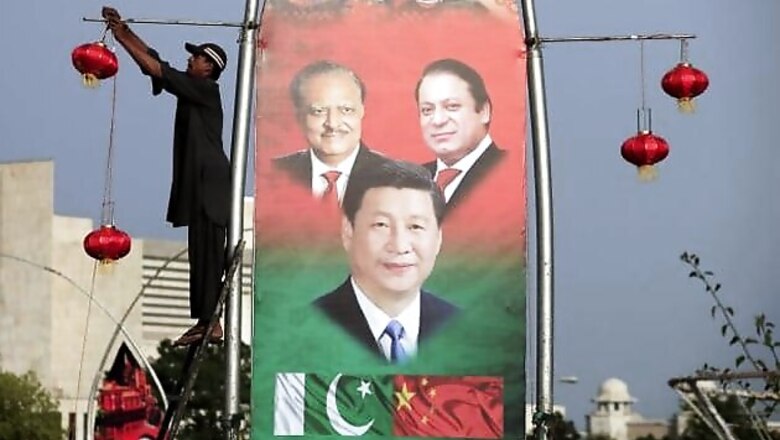
views
Beijing: With the USD 46 billion Sino-Pak Economic Corridor unveiled by President Xi Jinping stirring up a controversy in Pakistan, Chinese experts on Friday waded into the debate by suggesting that the proposed railway route be built through Karachi and Islamabad for commercial viability.
A railway route along the eastern part of Pakistan is the most feasible for the railway artery of the China-Pakistan Economic Corridor (CPEC), local media in Beijing reported on Friday.
"The eastern route, which would go from Karachi to Islamabad and further north in China's Xinjiang Uyghur Autonomous Region, is obviously more convenient and will cost less," state-run Global Times quoted a report as saying.
CPEC proposes to connect Pakistan's Gwadar port in Balochistan close to Iran border with Xinjiang through highways, rail lines, gas and oil pipelines.
Considering that the projected investments amounts to USD 46 billion, the biggest by China in overseas projects, various political parties in Pakistan demanded details of the route over anxieties that the dominant Punjab province could garner most of the investments leaving poor provinces like Sindh, Khyber Pakhtunkhwa (KP) and Balochistan out of it.
The eastern route of Karachi to Islamabad and Xinjiang through Pakistan Occupied Kashmir (POK), will leave Balochistan and KP, both of which are regarded as destabilised provinces due to the presence of militant groups.
Yin Xingmin, professor of the China Centre for Economic Studies at Fudan University, believes that the final project should be the eastern route, which crosses the more populous regions of Pakistan.
"A railway generates more economic impact when it passes through more populous regions," Yin said.
Chinese experts say that bilateral negotiation is vital in finalising the railway route, the flagship project of China's "One Belt, One Road" initiative, launched by Xi during his just concluded visit to Pakistan.
China's National Railway Administration and the Railways Ministry of Pakistan signed a MoU on a joint feasibility study for upgrading the ML1 railway line and the establishment of Havelain Dry Port of Pakistan Railways, the report said.
The deal was one of the more than 51 MOUs Pakistan and China signed in Islamabad during Xi's visit.
A spokesperson with the National Railway Administration said there is currently no news concerning how the route will be finalised.
"A mechanism of bilateral negotiation should be worked out, balancing the interests of all the stakeholders, and this experience should be able to be copied to other countries and markets included in the 'Belt and Road' initiative, highlighting the exemplary role of a flagship project such as the CPEC," Ma Hong, a Shanghai-based analyst, said.


















Comments
0 comment